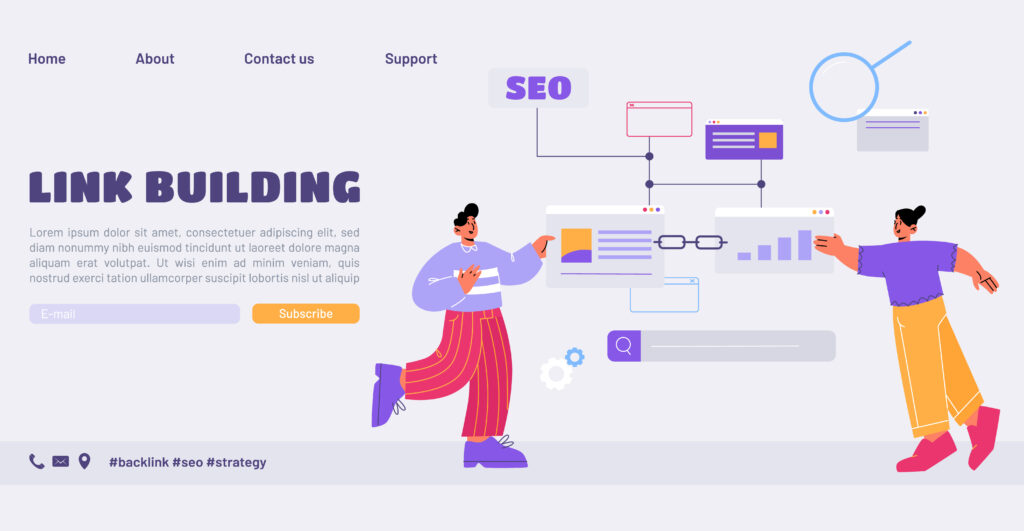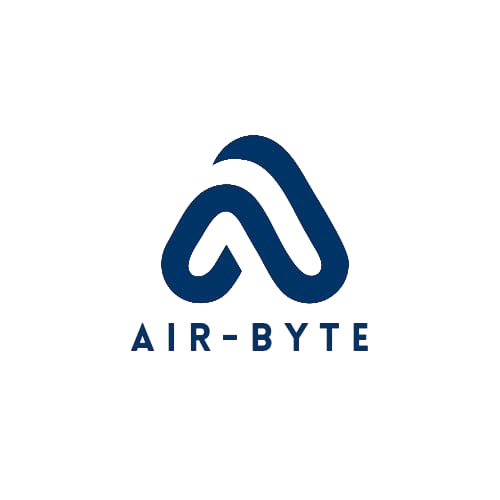Link Building
Boost Your Authority with Strategic Link Building
Our link building services focus on acquiring high-quality, relevant backlinks that enhance your website’s authority and improve search engine rankings. We employ a mix of white-hat techniques to ensure sustainable growth and compliance with search engine guidelines.

Boost Your Authority with Strategic Link Building
Boost Your Authority with Strategic Link Building
Strategic link building is one of the most powerful ways to improve your website’s SEO and boost your authority in your niche. It involves acquiring backlinks (links from other websites) to your site, which signals to search engines like Google that your site is reputable, valuable, and deserving of higher rankings. However, not all links are created equal. The key to effective link building is targeting quality over quantity and adopting a strategic approach.
Here’s how you can boost your authority with smart link-building tactics:
1. Create High-Quality, Shareable Content
The foundation of any successful link-building strategy is having content that others want to link to. This could be:
- In-depth blog posts or guides
- Research-backed case studies
- Infographics
- Tools or calculators
- Video content or tutorials
The more valuable and informative your content, the more likely others will be to reference or link to it.
2. Guest Blogging
Writing guest posts for other reputable websites in your industry is an excellent way to earn high-quality backlinks. When done correctly, guest blogging allows you to:
- Share your expertise
- Reach a broader audience
- Build relationships with industry influencers
- Obtain valuable backlinks from authoritative websites
Be sure to choose high-authority blogs in your niche, and aim to provide insightful, high-quality content that benefits their readers.
3. Broken Link Building
This strategy involves identifying broken (dead) links on other websites, then reaching out to the site owner with a suggestion to replace the broken link with a link to your relevant content. Here’s how to do it:
- Use tools like Ahrefs or Screaming Frog to find broken links on high-authority websites.
- Create content on your site that would naturally fit as a replacement for the broken link.
- Reach out to the website’s owner or webmaster and kindly inform them of the broken link, offering your link as a helpful alternative.
This tactic is a win-win: you help website owners fix a problem, and in return, you gain a valuable backlink.
4. Skyscraper Technique
The Skyscraper Technique involves finding popular content in your niche, creating a better, more comprehensive version of that content, and then reaching out to the sites that linked to the original content, asking them to link to yours instead. Steps include:
- Researching top-performing content using tools like BuzzSumo.
- Creating a more valuable version of that content, such as adding new insights, examples, or case studies.
- Promoting your content to the sites that linked to the original piece, suggesting they replace their link with yours.
The goal is to create “skyscraper” content—something so good that people can’t help but link to it.
5. Leverage Influencer and Industry Relationships
Networking and building relationships with influencers, bloggers, and journalists in your industry can open doors to valuable backlinks. By offering value (such as exclusive content, expert commentary, or sharing their work), you can encourage others to link back to your site.
You can also participate in expert roundups and interviews, where you contribute insights or commentary on topics in your field. These types of features often come with a backlink.
6. Local and Niche Directories
Submitting your website to reputable local or niche-specific directories can provide valuable backlinks, especially if you’re running a local business or a specialized website. Look for directories with high domain authority that cater to your business type or industry.
Be cautious about submitting to low-quality directories, as these can harm your website’s reputation. Stick with directories that are well-regarded and relevant to your niche.
7. Content Partnerships and Collaborations
Collaborating with other businesses, bloggers, or influencers in your industry can lead to mutual link-building opportunities. Joint ventures such as co-authored articles, webinars, or product collaborations provide both parties with the chance to acquire backlinks while also expanding their audience.
8. Utilize Social Media and Content Promotion
While social media links don’t directly impact SEO (since they’re generally nofollow), promoting your content on social platforms can lead to increased visibility. As your content gains exposure, other sites and bloggers may discover it and link to it naturally. Sharing your content with relevant online communities, like forums, Facebook groups, or Reddit threads, can also drive traffic and lead to links.
9. Resource Pages
Many websites have dedicated “resources” or “useful links” pages. These are great opportunities to earn backlinks by getting your content or website listed. Research sites that offer these pages in your industry and reach out to get your site included.
Make sure your content is truly helpful and provides value to the page where it will be listed. If you can demonstrate how your content fits into their existing resource list, you’re more likely to secure the backlink.
10. Monitor and Disavow Toxic Links
While link-building is essential for improving your authority, it’s also important to ensure you’re not acquiring harmful backlinks. Monitor your backlink profile regularly using tools like Google Search Console or Ahrefs, and disavow any low-quality or spammy links that could negatively affect your SEO performance.
11.esource Link Building
Find resource pages, where websites list useful tools, articles, or guides in your niche. Reach out and suggest your content as a valuable addition. These pages often have high-quality links and are excellent opportunities for earning backlinks.
12. Sponsor Industry Events or Webinars
By sponsoring relevant industry events or webinars, you often receive backlinks from the event organizers’ sites. These backlinks are especially powerful if the event has a strong audience or high domain authority.
13. HARO (Help A Reporter Out)
Use HARO to respond to journalists seeking expert sources. If your response is chosen, you’ll typically get a backlink to your website, enhancing your authority and visibility.
14. Create Linkable Assets (Tools, Templates, or Research)
Developing free tools, templates, or comprehensive research that others in your industry find valuable can naturally lead to backlinks. People love to link to resources that can make their own work easier or more efficient.
15. Leverage Testimonials
Write testimonials for businesses or tools you use in your industry. Many companies showcase these testimonials on their websites with a backlink to the person’s or company’s website, providing a simple, often overlooked way to earn high-quality links.< br>
Final Thoughts
Link building is an ongoing process that requires patience and consistency. It’s not just about acquiring as many links as possible—it’s about acquiring the right links that help establish your website’s authority and relevance in your niche. By focusing on high-quality, relevant backlinks and employing a mix of these strategies, you can effectively boost your website’s search engine rankings and reputation.
If you want long-term SEO success, remember that great content, relationship-building, and providing value are the foundations of a solid link-building strategy.

